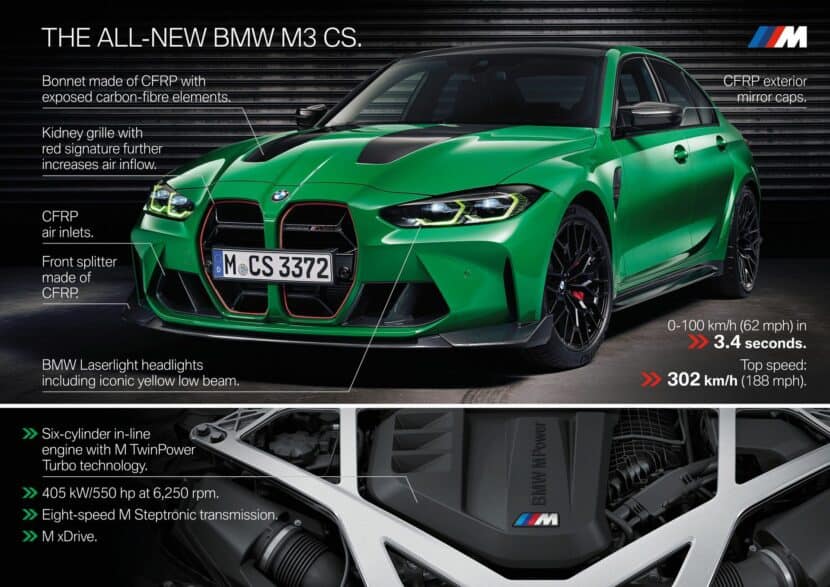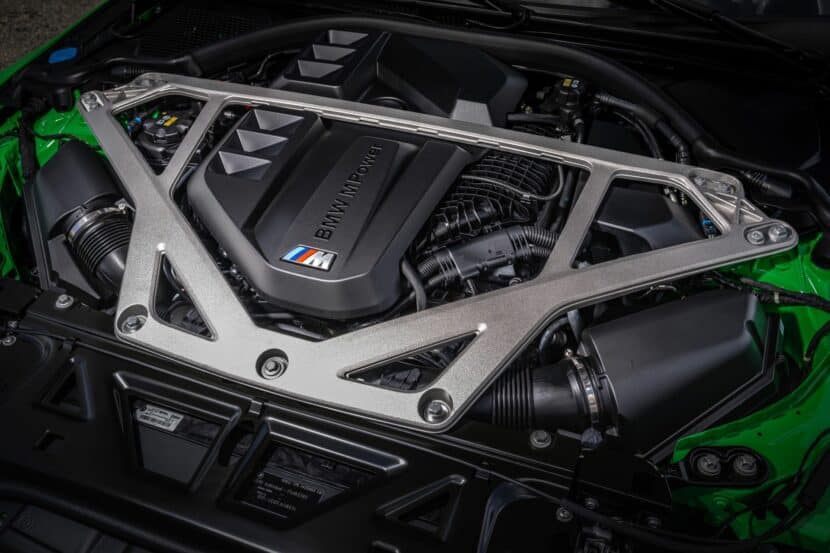The 2024 BMW M3 CS made its world debut this past weekend at the iconic Daytona 24 Hours race. BMW M CEO Frank Van Meel was on site to unveil the second generation M3 CS. Joining the M boss was also the head of R&D at the BMW M Division – Dirk Häcker. The chief engineer at M is directly responsible for the M cars we see on the road today, including the new generation G80/G81/G82 M3 and M4. Naturally, the G80 M3 was part of his workload in the last few years.
More Aggressive Driving Modes
To learn more about the new M3 CS, we sat down with Häcker for a short, but conclusive interview. First and foremost, we wanted to find out if there are any hardware changes in the 2024 BMW M3 CS compared with the M3 Competition models. Historically, all the CS models were mostly software tuned, and that’s the case with this new M3 CS as well. Häcker goes over the suspension setup as well which features a stiffer springs damper setup compared to the Competition variants. The suspension was also tuned with the Michelin Sport Cup 2 tires in mind.
When it comes to the various driving modes, Häcker explains that all of them have been altered. For example, the Comfort Mode in the new BMW M3 CS is more aggressive than the same mode in the M3 Competition. Consequently, all the other modes – Sport, Sport+ – are also a bit sportier, but less aggressive than the driving modes of the M4 CSL.
Same Power as M4 CSL
According to Häcker, there were no mechanical changes within the power unit either. The engine in the new BMW M3 CS puts peak torque of 650 Nm (479 lb-ft) on tap from just 2,750 rpm and sustains it all the way to 5,950 rpm. It generates maximum output at 6,250 rpm and tops out at 7,200 rpm. All of these figures were achieved via software tune and by raising the maximum charge pressure of the two mono-scroll turbochargers from 1.7 to 2.1 bar. The power delivery in the M3 CS is also said to be similar to the one in the M4 CSL.
So why there were no hardware upgrades needed for the S58 engine? Häcker says that this particular unit was built from the beginning with different power outputs in mind. And more importantly, it was built to serve as the base for the P58 racing engine as well. “If you look at the P58, we have to dry sump, completely different inlet and outlet, but the mechanical basic construction is from the S58,” says Häcker. “Therefore, the basic concept [of the engine] is adaptable.”
We also asked whether a third-party company could modify the ECU tune to match the M3 CS’ one. “I recommend to be careful if you tune up in after sales, because you don’t know what the upper limits are. We are also a little bit careful not to push the limits,” added the M R&D boss.
Häcker did mention that the titanium exhaust, similar to the M4 CSL one, might be considered a hardware change and as we’ve seen in our video, it does sound louder than the stock exhaust of the M3 Competition. You can also learn more about the 2024 BMW M3 CS from our interview with Frank Van Meel, which can be found below.
Subscribe to BMWBLOG Channel


